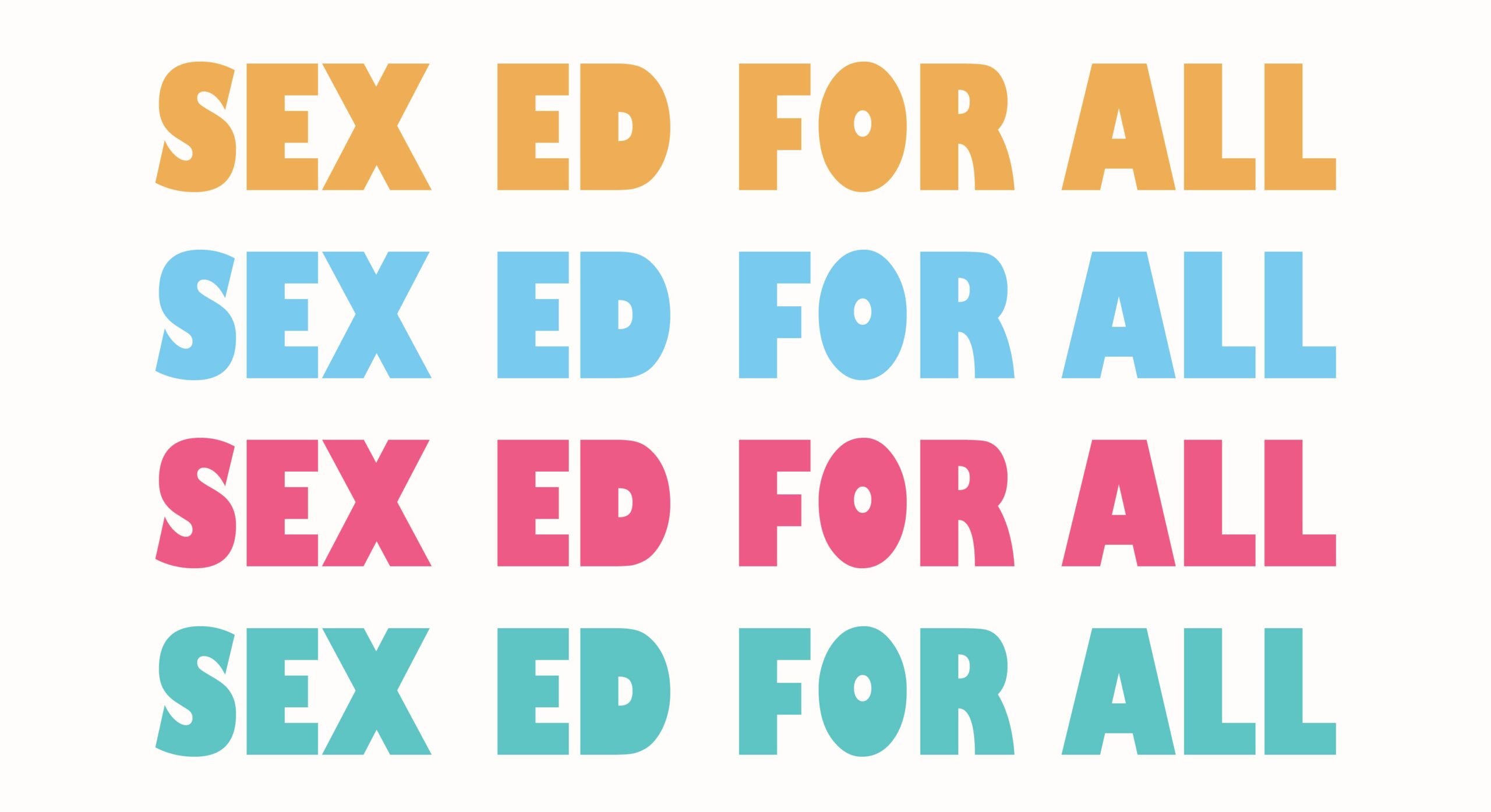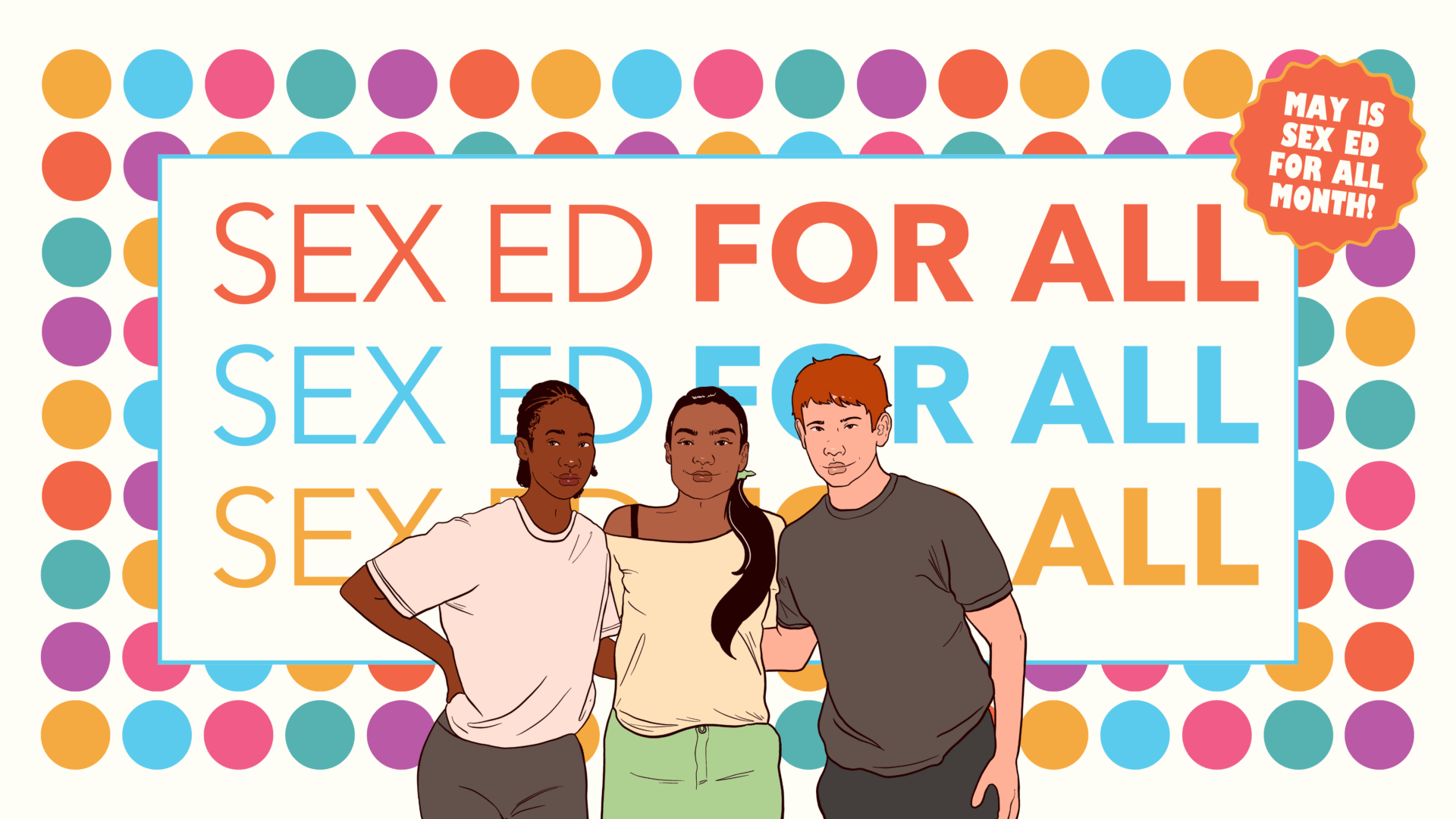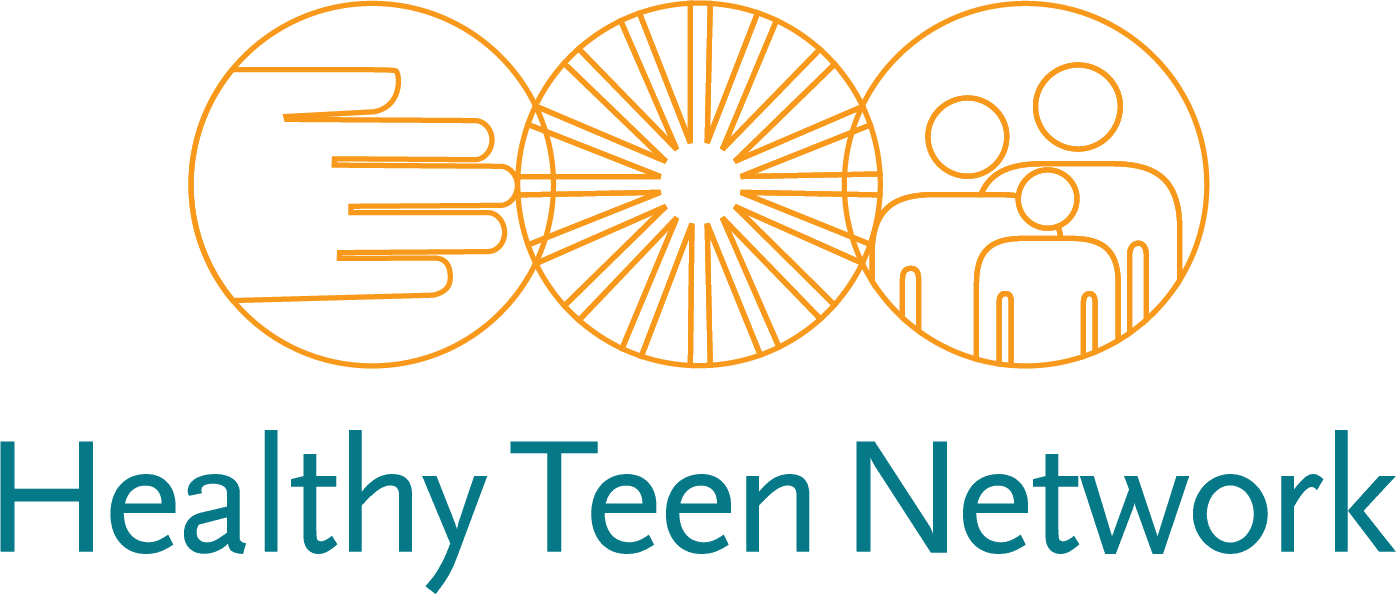
May 8, 2025
In 2025, the fight for sex education is more urgent than ever. Join us as we celebrate May as Sex Ed for All Month and voice our commitment to a world where all young people—no matter who they are or where they live—get the sex education they deserve.
Use these talking points for media interviews, public commentary in school board meetings, discussion points in staff training, or everyday conversations!
Background
Sex Ed for All Month is a national call to action to ensure every young person has access to comprehensive, medically accurate, and inclusive sex education. However, in 2025, the fight for sex education is more urgent than ever.
Sex education is under attack by well-funded, organized groups that seek to strip young people of their right to knowledge and bodily autonomy. From book bans to curriculum censorship, from restrictions on abortion and contraception to attacks on LGBTQ+ students, the same forces driving policies that harm young people are also behind the effort to erase comprehensive sex education from schools.
Now, more than ever, we must ensure that sex education is valued as a fundamental right.
Schools are ground zero for political battles over education, truth, and democracy. Misinformation and fear-mongering are being used to limit young people’s ability to learn about their own health, identity, and rights—topics that parents overwhelmingly support being taught in schools. Sex Ed for All Month is about telling the truth and showing up for young people. Now, more than ever, we must ensure that sex education is valued as a fundamental right.
Research shows that the vast majority of parents—regardless of political ideology, religion, race, culture, class, or geography—want their kids’ education to include sex education. Yet many young people are not getting the information and decision-making skills their parents know they deserve. With this in mind, each May we celebrate Sex Ed for All Month—an opportunity to voice our shared commitment to a world where all young people get equitable access to the education and care they deserve.
This annual observance is coordinated by the Sex Education Collaborative, in partnership with a national coalition of sexual and reproductive health, rights, and justice organizations committed to ensuring equitable and accessible sex education for ALL young people nationwide. We invite you to join us as we turn up the volume on the messages, practices, and policies that help young people have healthy relationships, make healthy decisions, and have positive health outcomes.
Each May since 2019, Sex Ed for All Month is an opportunity to voice our shared commitment to a world where all young people get equitable access to the education and care they deserve. We invite you to join us in raising awareness and calling for real investment in sex education in schools and communities. Too many young people fail to receive the sexual health information, education, and access to the care they need to live healthy lives—oftentimes based on who they are and where they live.
While May was formerly known as Teen Pregnancy Prevention Month, the shift to Sex Ed for All Month marked a dramatic turn away from what was previously often stigmatizing and problematic messaging. Instead, we want to stand with young people, so they have the power and the right to access the sex education and health care they need to achieve the best positive outcomes for themselves.
Main Message
Comprehensive sex education is a pro-freedom issue.
Comprehensive sex education is a pro-freedom issue. It ensures that young people have access to facts, not fear; information, not misinformation. Yet across the country, censorship and extremism threaten young people’s right to learn.
We must reject state-sanctioned ignorance and fight back against efforts to erase honest, inclusive education. This is about more than just sex education—it’s about ensuring every young person can access the knowledge, skills, and resources they need to lead healthy, informed, and empowered lives.
Sex Ed for All Month is about ensuring every young person—no matter their zip code, gender, race, or income—has access to the knowledge they need to lead healthy, empowered lives. But in 2025, this is about more than just sex education. It’s about fighting back against attacks on truth, education, and bodily autonomy.
This May, we stand together: For young people. For honest education. For democracy.
#SexEdForAll #ProtectSexEd #FightBack
Talking Points
Sex education gives young people age-appropriate, medically accurate, and culturally relevant information and answers to their questions about sex and relationships without being shamed or judged. It has been proven to positively impact young people’s lives. But too many young people don’t have access to sex education, or the programs in their school are shaming or inaccurate. By advocating in our communities, we can ensure Sex Ed for All.
Sex education is under attack—because it works.
- The same groups banning books, censoring history, and restricting reproductive rights are targeting sex education.
- The opposition’s goal? To keep young people uninformed, disempowered, and unable to make decisions about their own bodies and futures.
- But research shows that comprehensive sex education leads to better health outcomes, healthier relationships, and safer communities.
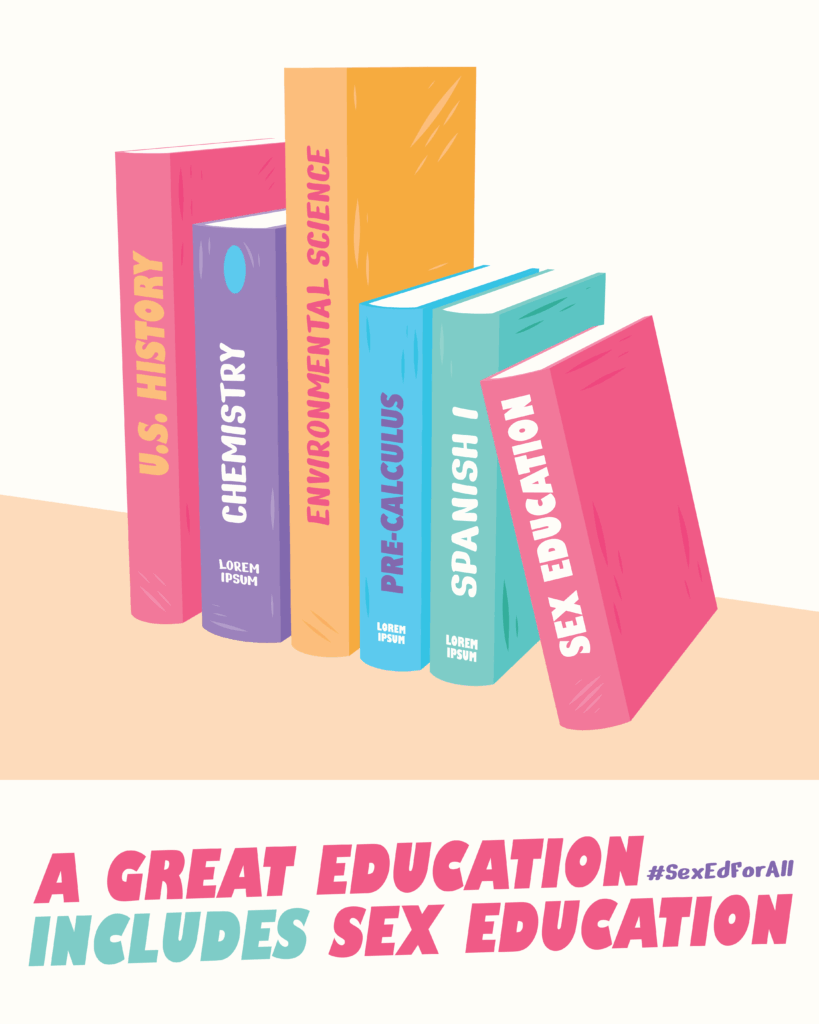
A great education includes sex education.
- It helps young people learn how to have healthy relationships, make informed decisions, and respect their own and others’ boundaries.
- Sex education addresses a wide range of topics in age-appropriate ways to help keep young people safe, healthy, and happy.
- Sex education is more than just putting condoms on bananas. It teaches young people how to have healthy relationships with themselves and others.
- In elementary school, sex education covers age-appropriate topics like consent and boundary setting with friends, understanding our bodies and puberty, and respecting different kinds of families.
- In middle school, sex education supports kids in developing a healthy body image and addresses age-appropriate issues like healthy peer relationships and anti-bullying, staying safe online, and media literacy skills.
- In high school, sex education covers birth control, safer sex, sexual decision-making, and communication skills, as well as discussions of how our society and culture shape our ideas about sex, gender, and race.
Sex education is a pro-freedom issue.
- The fight for sex education is part of a larger fight for truth, bodily autonomy, and the right to an honest education.
- Censorship and bans on sex education don’t “protect” young people—they make them more vulnerable.
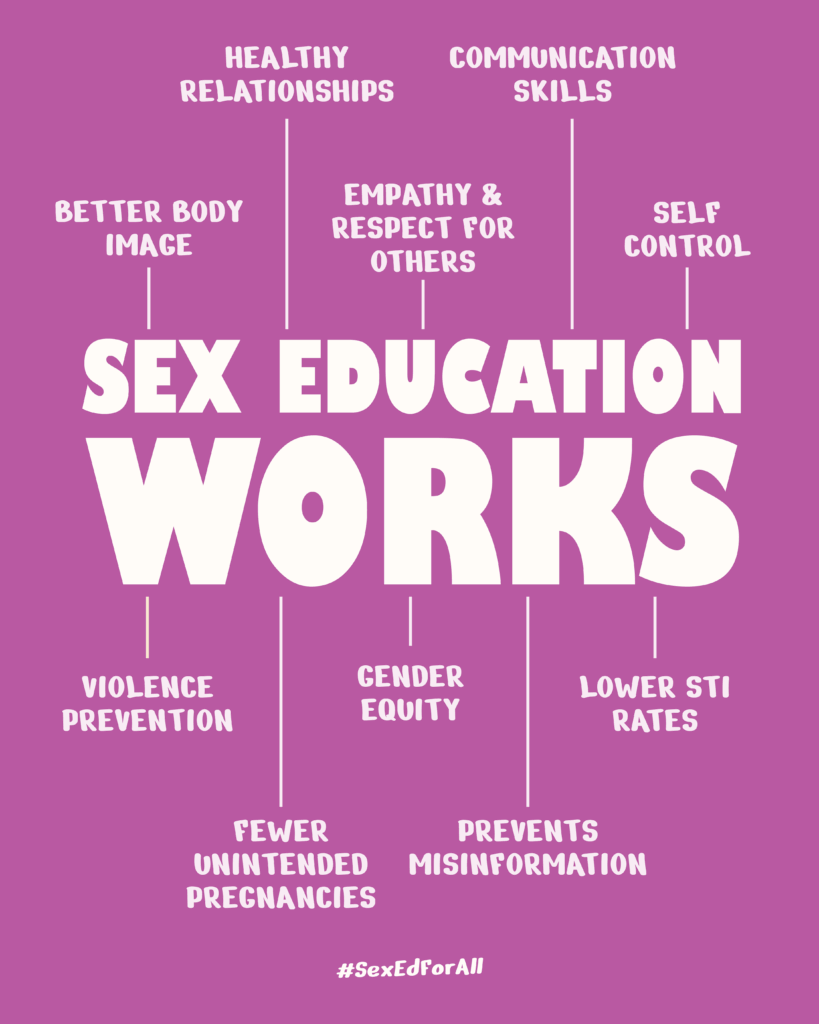
Sex education works.
- It gives young people the knowledge and skills they need to grow up safe, healthy, confident, and respectful of others.
- Research shows that sex education that is culturally responsive and inclusive helps young people develop the social and emotional skills they need to become kind and empathetic human beings and healthier and more well-adjusted adults.
- Young people who receive sex education have better self-esteem and healthier relationships.
- Sex education that teaches diversity, equity, and inclusivity can also help build school connectedness, which supports student achievement.
- Sex education that includes LGBTQ+ identities has been shown to reduce bullying, discrimination, and harassment, making schools safer for all young people.
- Specifically, sex education leads to better body image, more empathy and respect for others, better communication skills, better management of feelings, better sense of self-control and safety, prevention of child sex abuse and dating and intimate partner violence, development of healthy relationships, better understanding of gender equity and appreciation of sexual diversity, more protection against mis/disinformation (online and from peers), lower STI rates, and fewer unintended pregnancies.
- Medical experts agree that sex education that is comprehensive, inclusive, and medically accurate is critical for young people.
- Sex education teaches young people the importance of treating everyone with dignity and respect, including themselves. School-based sex education that addresses LGBTQ+ relationships and sexual violence prevention helps young people prevent and respond to sexual violence.
Sex education is not controversial.
The overwhelming majority of Americans (including medical experts, parents, and young people) support sex education.
- Despite the loud but small opposition, parents overwhelmingly support comprehensive sex education in schools. 96% of parents support sex education in high school, and 84% of parents support sex education in middle school.
- The vast majority of Republicans and Democrats agree that sex education covering a wide range of topics is important to teach in middle and high school.
- Major medical organizations, including the American Academy of Pediatrics and the American Medical Association, support sex education as essential public health policy.
- Sex education at school supports sex education at home. School programs emphasize and support family communication about sex and relationships.
Misinformation is fueling attacks on sex education.
- AI-generated disinformation, viral conspiracy theories, and coordinated online attacks are making it harder for parents and educators to know what’s real.
- The truth? Sex education is age-appropriate, medically accurate, and designed to keep young people safe—not “indoctrinate” them.
- Extremist groups are using sex education as a wedge issue to push a broader anti-democratic, anti-public education agenda.
- Schools should be places of learning, not political battlegrounds.
- The same forces banning sex education are also banning books about race, gender, and history.
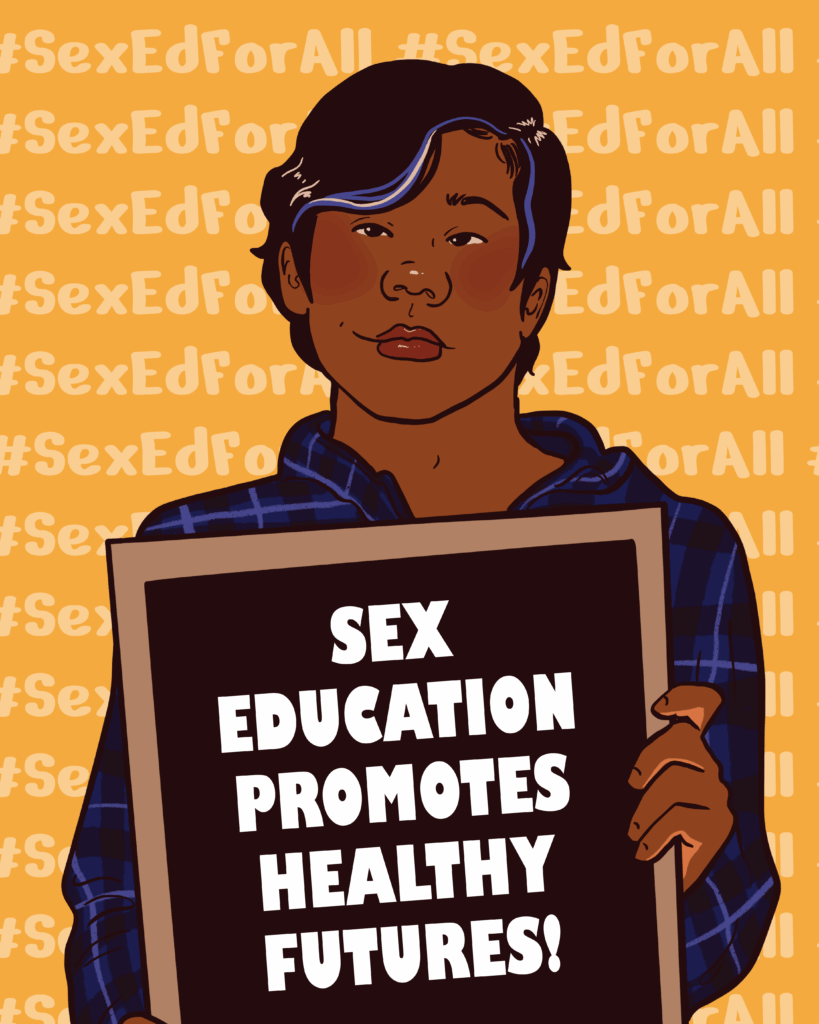
Sex education has never been universally accessible, but it is now becoming even less so.
- There is a coordinated attack to dismantle the U.S. Department of Education (DOE)—a direct threat to the health, safety, and civil rights of over 50 million students nationwide.
- Opposition to honest education is nothing new. There has always been a vocal minority (wrongly portrayed as a large grassroots movement) intent on stopping honest, equity-centered education that could lead to positive social change like civil rights and desegregation. They bring people from other towns to take over school board meetings. They fund big social media disinformation campaigns. They harass young people, parents, and staff who advocate for rigorous health education and safe schools.
- These extremist groups are using sex education as a wedge issue to push a broader anti-democratic, anti-public education agenda. The same forces banning sex education are also banning books about race, gender, and history.
- Censorship and book bans harm ALL students. Schools should be places of learning, not political battlegrounds.
Limiting or attempting to ban sex education will not stop young people’s curiosity.
- Banning sex education doesn’t make young people less curious—it just makes them more vulnerable to misinformation.
- Young people will still learn about sex, relationships, and their bodies—just from less reliable, potentially harmful sources, including social media, pornography, and AI-generated content.
- Digital literacy must be part of sex education, ensuring that young people can spot misinformation, navigate online relationships safely, and protect their privacy.
Want more information on #SexEdForAll? These talking points were developed by the Sex Education Collaborative as part of Sex Ed For All Month.
At Healthy Teen Network, we believe every young person has the right to be who they are and love who they love. And we see you, the professionals and caring adults, helping them do this. We know you do your best when you’re connected to great opportunities and resources. That’s why we’re here…to help make those connections and support you. Read more about us.

